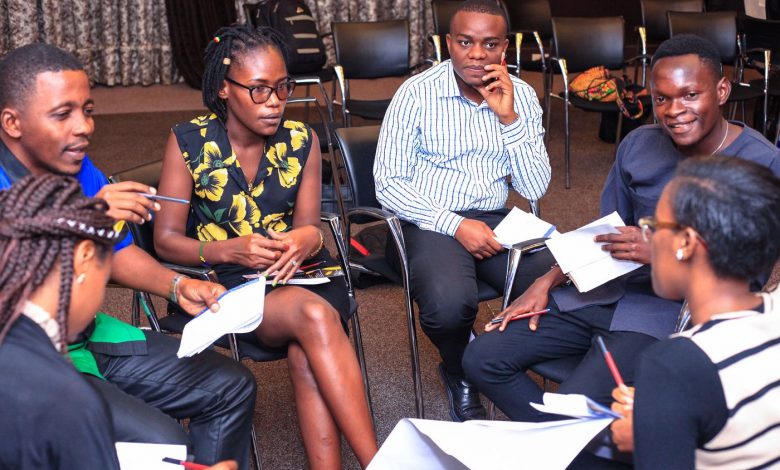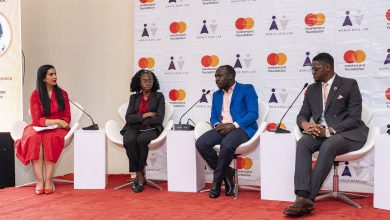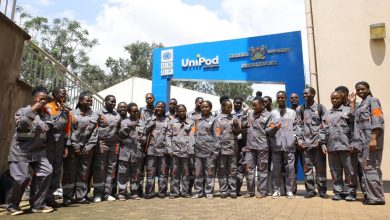
Uganda has empowered young people to spearhead change
Uganda is among the 39 African States that ratified the African Youth Charter (AYC) on 6th August 2008.
71% of the youth (18 – 30) live in rural areas while 29% live in urban areas. 23% of Uganda’s households are headed by youth.
55% of the young people are employed in the agricultural sectors while 15% are in the trade sector. The average monthly earning of employed youth is 172,000/- (USD 46).
The African Youth Charter require young persons to: –
become the custodians of their own
development, protect and work for family life and cohesion, espouse an honest work ethic and reject and expose corruption, defend democracy the rule of law and all human rights and fundamental freedoms.
In a bid to domesticate the African Youth Charter, Uganda has made various interventions to ensure that the youth are planned for and involved in the decisions that affect the citizens.
In Uganda, the right to development and poverty alleviation has been promoted through empowerment programs such as: – Youth Livelihood Programme; the Youth Livelihood Fund; the National Youth Venture Fund; the Northern Uganda Social Action Fund Youth Opportunities Program; Operation Wealth Creation; Emyooga; the Parish Development Model (PDM); and the Graduate Venture Fund.
While all these programs are well intended, they can only succeed if the people are willing to succeed.
They cannot succeed without focused youth, who are determined to work and are free of corruption.
Article 21 of the Constitution prohibits discrimination. We have established institutions such as EOC, UHRC and the National Youth Council (NYC). These institutions inherently protect youth against discrimination.
Currently, there are five youth MPs in Uganda’s Parliament. But even besides the special interest MP positions, Youth aged 18 and 30 constitute a large number of the current Parliament.
Youth in Uganda are also represented in each district and sub-county local council by 2 youth who should include a male and a female. However, we can do more, through:
(a) Encouraging and promoting youth-led non state organizations supporting civic
engagement, providing financial literacy programmes etc;
(b) Supporting the establishment of independent national youth councils;
(c) Strengthening the participation and inclusion of young persons with disabilities in decision-making processes on an equal basis with others;
(d) Providing young people who are disconnected or socially and economically excluded with opportunities to participate in decision-making processes.
Ugandans and especially the youth have enjoyed their freedom of expression and association especially through social media where they express their views and opinions.
While we still face some limitations in regard to the closure of Facebook, on the whole, the youth in Uganda maintain a fair level of freedom of expression.
What remains to be seen is how well the youth use the various platforms to advance their social and economic growth issues.
Government formulated the Uganda National Youth Policy which aims at unlocking the potential of youth for sustainable wealth creation and general development.
The policy is operationalized through the National Youth Action Plan (NYAP). While the NYP and NYAP are in place, majority of the youth do not know about their existence.
Government of Uganda introduced the Universal Secondary Education in 2007 which notably increased the enrolment of girls at secondary school level and is decreasing the gender gap progressively.
Schools however still have challenges of teenage pregnancies, teacher absenteeism, and inadequate teaching skills among others.
The youth still get involved in risky and irresponsible lifestyles, which affects their health. Various health promotion campaigns such as efforts to combat HIV/AIDS have targeted young people.
However, there is need to create awareness about mental health in Uganda so as to come to the rescue of youth contemplating suicide and other life threatening decisions.
Access to Justice remains a challenge in regard to success to legal representation in courts.
Female Genital Mutilation (FGM), Forced and Early marriages, sexual exploitation, domestic violence, human trafficking, and labour exploitation still persist in Uganda despite existing legal provisions.
More efforts are needed to address this.
In conclusion, young people are a major human resource for development and key agents for social change, economic growth and technological innovation.
Through active participation, young people are empowered to play a vital role in their own development and in their communities.
We should strengthen young people’s abilities to meet their own subsistence needs; prevent and reduce vulnerabilities to economic, political and social unstable environments; as well as promote ownership and sustainability of interventions.
The author is a commissioner at Uganda Human Rights Commission
Crispin Kaheru



